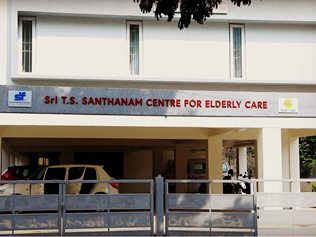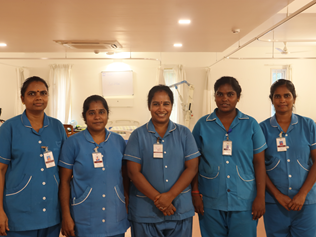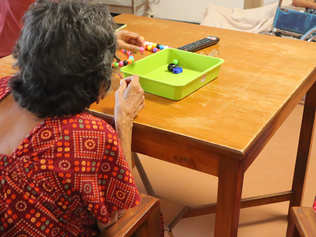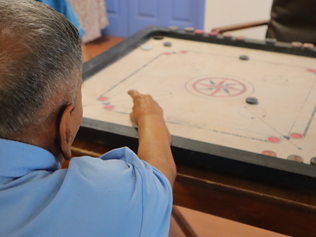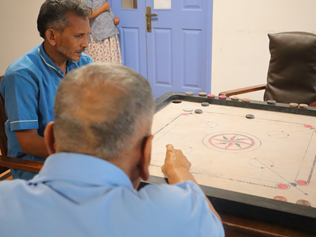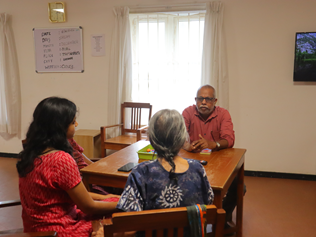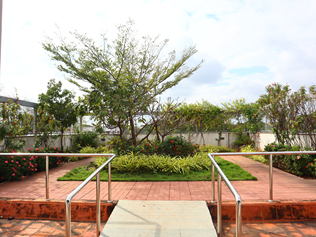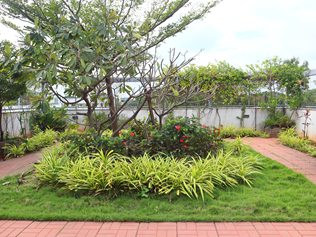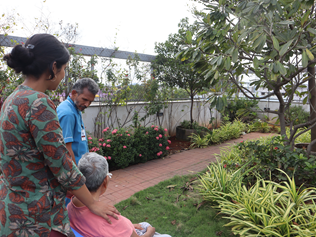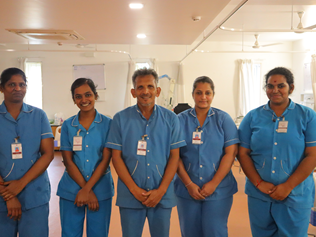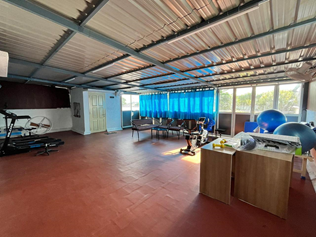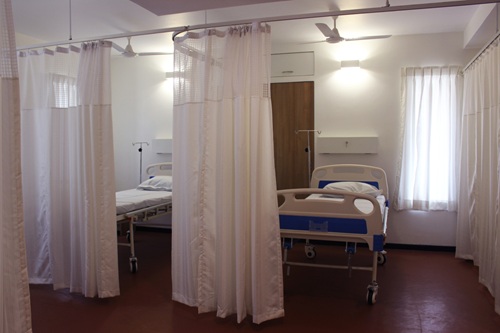WE TREAT
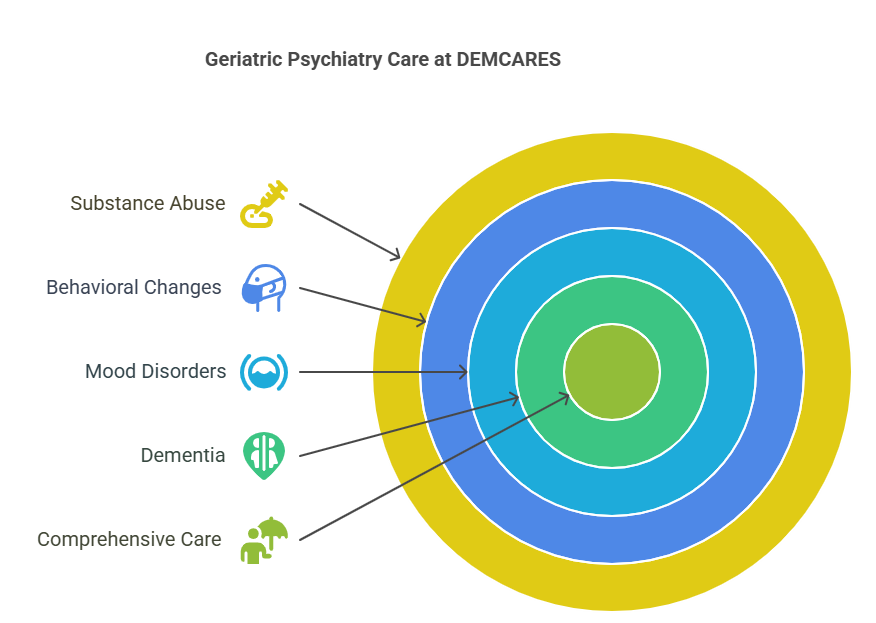
We Treat
Our geriatric psychiatry team at DEMCARES evaluates and manages care for the elderly with all types of mental and emotional disorders, such as:
- Alzheimer's disease, Lewy body dementia, mild cognitive impairment, and other types of dementia
- Anxiety, depression, and other mood disorders
- Behavioral changes such as aggressiveness, outbursts, or social withdrawal
- Sleep disorders
- Alcohol and substance abuse and dependence
- Psychiatric symptoms related to other co-occurring medical or neurological conditions
- Late-life psychosis, such as schizophrenia
- Self-harm behaviors or suicidal thoughts or attempts
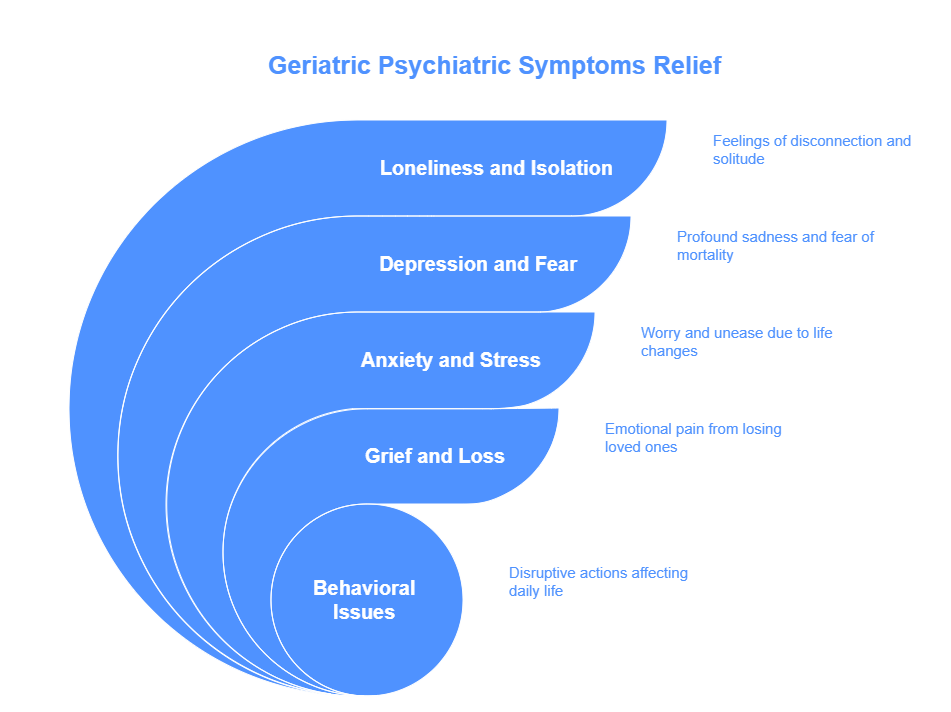
Basic Geriatric Psychiatric Symptoms
DEMCARES offers treatment that helps relieve symptoms such as:
- Feelings of loneliness, isolation, and lack of purpose
- Stress and worry caused by the challenges of living with physical health conditions
- Anxiety due to mobility limitations or living conditions, such as financial strains, overwhelming home maintenance, or stress resulting from the sale and moving from their home
- Grief over the death of a spouse, family member, or friend
- Severe depression or anxiety that affects their ability to function
- Intense fear of a terminal illness or death
- Behavioral issues such as agitation, repetitive behaviors, outbursts, or mood swings
- Lack of self-esteem or confidence
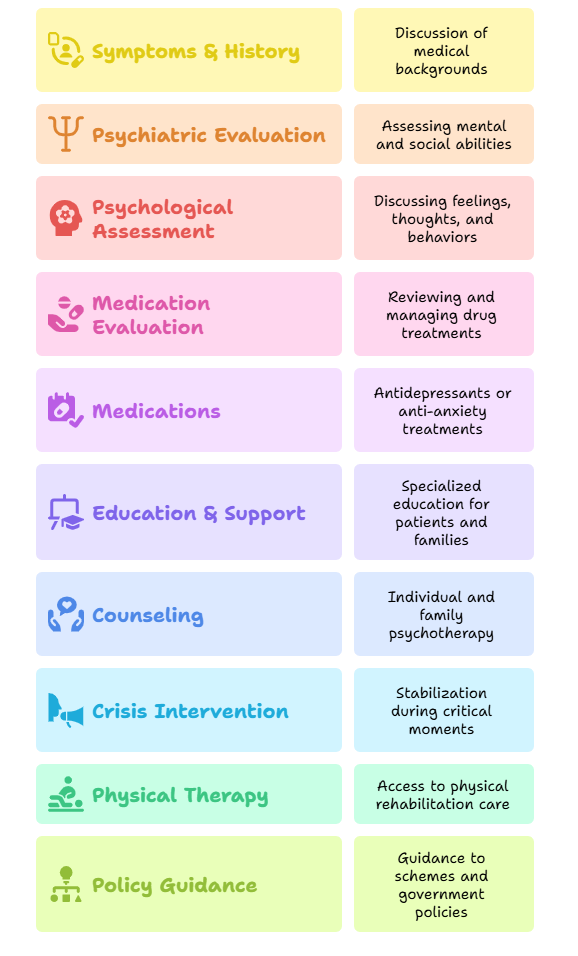
Treatments at DEMCARES
DEMCARES brings together specialists from several fields of medicine for comprehensive care. Our team works closely with each patient and their family to provide a thorough evaluation, beginning with a:
- Discussion of symptoms, personal medical history, and family medical history
- Psychiatric evaluation to assess cognitive and social functioning and screen for mental health conditions
- Psychological assessment to discuss feelings, cognitive strengths and weaknesses, thoughts, and behaviors
We then create a personalized treatment plan to manage each patient's specific needs and relieve their symptoms. Our treatment options and other services include:
- Medication evaluation and management
- Medications, such as antidepressants or anti-anxiety medications, to treat symptoms
- Specialized education and support for patients, their families, and their caregivers about mental health conditions and how to manage care at home
- Individual and family counseling (psychotherapy) and support groups
- Crisis intervention and stabilization, when appropriate
- Access to physical therapy care
- Guidance to schemes and government policies profitable to the elderly
To provide the best and most convenient experience for our patients, we offer tele-services and house visits as well as in-person clinic visits. We also provide in-patient care when needed to patients in crisis.
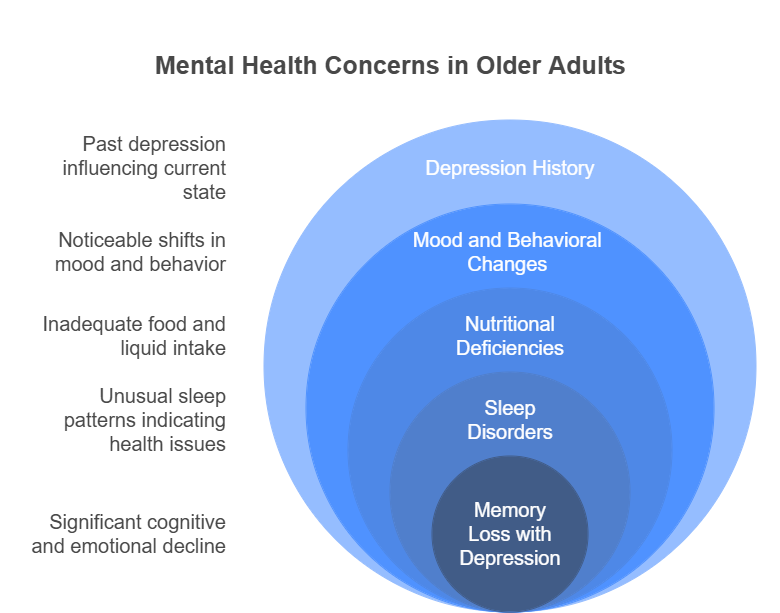
When to Seek Out a Mental Health Professional
You should consider consulting a mental health professional if an older adult:
- Has a history of depression and now feels sad most of the time, has lost interest in most of their daily activities, or has difficulty paying attention to their activities or environment
- Has noticeable changes in memory, concentration, moods, or personal care
- Doesn't eat enough food or drink enough liquids to stay healthy
- Makes unusual sounds or movements while sleeping or seems excessively sleepy, which could be signs of a sleep disorder
- Has memory loss with depression, with difficulty planning or making decisions, or after a change in medications
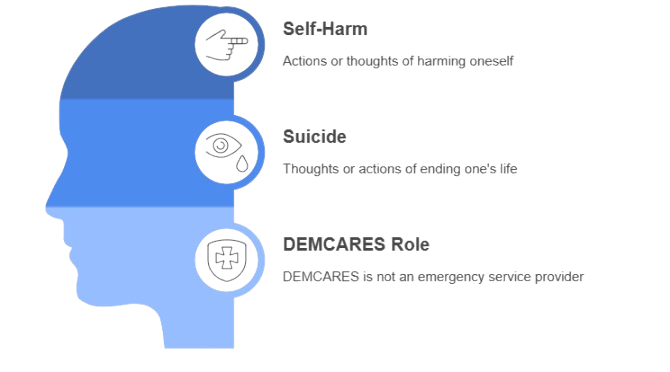
When to Seek Emergency Care
Seek emergency care immediately if the person talks about self-harm or suicide. It's critical to take a person seriously if they talk about either self-harm or suicide.
Note: DEMCARES is not an emergency service provider.
The effects of COVID-19 on the geriatric population
Given that older persons have a higher risk of suicide than the general population, the circumstances surrounding COVID-19 might heighten this risk. The COVID-19 epidemic's social distancing policies and COVID-19 therapy's ethical guidelines may make the three key components of the Interpersonal Theory of Suicide, being excluded from society, feeling disposable, and being exposed to suffering, worse.
The COVID-19 epidemic strains resources, and it has sparked moral discussions regarding practices involving prioritizing the treatment of younger populations. Such encounters can limit seniors' ability to obtain necessary medical and mental health treatments and may send harmful messages about frailty.
Moreover, the COVID-19 pandemic's potential for long-term distress may have an impact on neurological, immune, and physiological functions, increasing the likelihood of suicide. There is a discussion of potential locations to increase alternative therapies and decrease social exclusion.
People with PTSD are more likely than the general population to have suicidal thoughts, attempt suicide, and possibly even die by suicide; nevertheless, individuals are far less likely to seek assistance due to stigmatization fears, the idea that symptoms will subside gradually, and occasionally an absence of understanding about the illness on its own.
In terms of mortality, COVID-19 infection has the greatest impact on the elderly, with 14.8% of cases occurring in adults over 80 compared to 0.2% in people under 40. More municipal governments are outlawing visits to care homes and long-term care facilities to reduce the risk of infection among elderly residents.
Additionally, prohibiting communal TV viewing, board game play, and art therapy sessions may be detrimental to residents' mental and physical health. Residents of nursing homes are already prone to loneliness, and the absence of social connection brought on by a decline in visits from family and friends exacerbates the traumatizing effects of COVID-19 on their daily lives.
A difficult conundrum for patients, caregivers, and health professionals is sexual disinhibition in persons with neurocognitive impairments. The most typical change in sexual activity associated with the development of a neurobehavioral disorder is a downturn in sexual attraction; however, between 1.8% and 25.9% of patient samples with neurodevelopmental disorders have shown the onset of sexual dissociation or inappropriate sexual behaviors.
VISIT OUR CENTER
The Center for Active Aging
Scarf Hospital - Third Floor
The Centre for Active Aging located at the third floor has been specifically designed to be dementia-friendly. This aims to provide various non-pharmacological support to older adults with various mental health conditions such as dementia, depression, anxiety, psychosis and other related conditions.
Services for Persons with Dementia
1. Cognitive Stimulation Therapy (CST)
This is a structured 14 session long intervention, that is conducted twice a week for persons with dementia in their mild to moderate stages.
2. Cognitive Engagement / Day Care Support
Day care and other cognitive activities such as drawing, painting, craft or music are provided to help with engaging persons with dementia during the daytime.
3. BPSD Management
(Behavioural and Psychological Symptoms of Dementia) - One on One sessions with the person with dementia as well as their caregivers to help manage various behavioural and psychological problems that occur in dementia such as wandering, aggression and so on.
4. Person-Centered ADL Training
Person-Centered training for Activities of Daily Living such as bathing, cooking, shopping, or dressing are provided.
Services for Caregivers
1. Counseling and Support
Counseling and support to the family members of persons with dementia that helps with their own well-being and in turn aid in taking care of their relatives are provided.
2. Dementia Awareness Course (DAC)
This is a detailed module that explains about dementia and all the associated challenges, and ways to manage them. It is usually provided for caregivers as a group, whose family members are recently diagnosed with dementia.
3. Strategies for Relatives (START)
START is an eight session long, individualised program designed for caregivers and facilitated by a mental health professional. It includes various aspects such as psychoeducation, managing behaviour problems and ways to manage one's own self care needs.
Other Mental Health Conditions
Counseling and Psychotherapy for various conditions in older adults such as depression, anxiety, psychosis, grief and other adjustment issues are also provided.
At the Centre, various assessments are also conducted for older adults that help develop individualized care plans with multi-professional inputs in collaboration with the caregivers for holistic and efficient care.
Sri T S Santhanam Centre For Elder Care
Our Inpatient Facility
Sri T S Santhanam Centre for Elderly Care is a unit of Schizophrenia Research Foundation (SCARF) India specifically designed for persons with dementia. SCARF is a non-governmental, not for profit organization based in Chennai.
SCARF expanded its programming to address the community's needs by establishing a residential center for individuals with Dementia.
🏗️ Facility Design & Features
- Capacity: 20 beds within a thoughtfully designed building
- Design: Dementia-friendly principles in collaboration with Stirling University, UK
- Layout: Dedicated wards for specialized care
- Activity Areas: Spacious activity room for therapeutic programs
- Clinical Spaces: Consultation and therapy rooms
- Fitness: Fully equipped gymnasium
- Outdoor Space: Serene garden on the terrace
🏢 Modern Amenities
- Solar panels for sustainable energy
- CCTV cameras for security and monitoring
- Well-equipped kitchen for nutritious meals
- Elevators for accessibility
- Climate-controlled environment
👥 Multidisciplinary Team
A comprehensive team of healthcare professionals available:
- Psychiatrists
- Psychologists
- Physicians
- Nurses and nursing assistants
- Physiotherapist
- Nutritionist
- Pharmacist
Services Provided at the Inpatient Facility
Cognitive Stimulation Therapy (CST)
Structured 14 session intervention, conducted twice a week for persons with dementia in mild to moderate stages.
Cognitive Engagement / Day Care
Day care and cognitive activities such as drawing, painting, craft or music to engage persons with dementia during daytime.
BPSD Management
One-on-one sessions with persons with dementia and caregivers to manage behavioral and psychological symptoms like wandering and aggression.
ADL Training
Person-centered training for Activities of Daily Living including bathing, cooking, shopping, and dressing.
Services for Caregivers
1. Counseling and Support
Counseling and support to the family members of persons with dementia that helps with their own well-being and in turn aid in taking care of their relatives are provided.
2. Dementia Awareness Course (DAC)
This is a detailed module that explains about dementia and all the associated challenges, and ways to manage them. It is usually provided for caregivers as a group, whose family members are recently diagnosed with dementia.
3. Strategies for Relatives (START)
START is an eight session long, individualised program designed for caregivers and facilitated by a mental health professional. It includes various aspects such as psychoeducation, managing behaviour problems and ways to manage one's own self care needs.
Other Mental Health Conditions
Counseling and Psychotherapy for various conditions in older adults such as depression, anxiety, psychosis, grief and other adjustment issues are also provided.
At the Centre, various assessments are also conducted for older adults that help develop individualized care plans with multi-professional inputs in collaboration with the caregivers for holistic and efficient care.
OUR FACILITIES
The Center for Active Aging
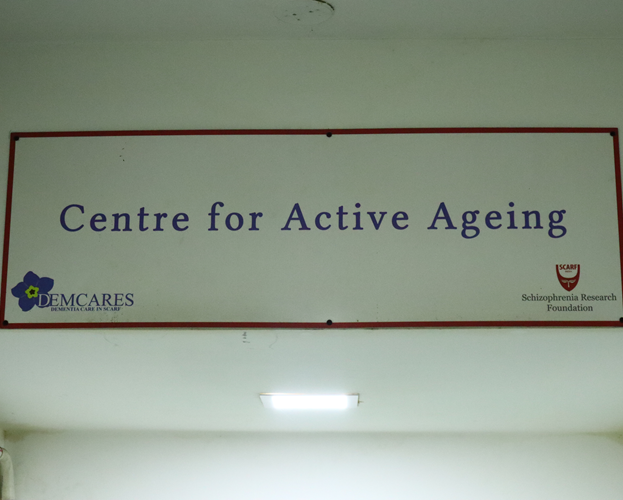
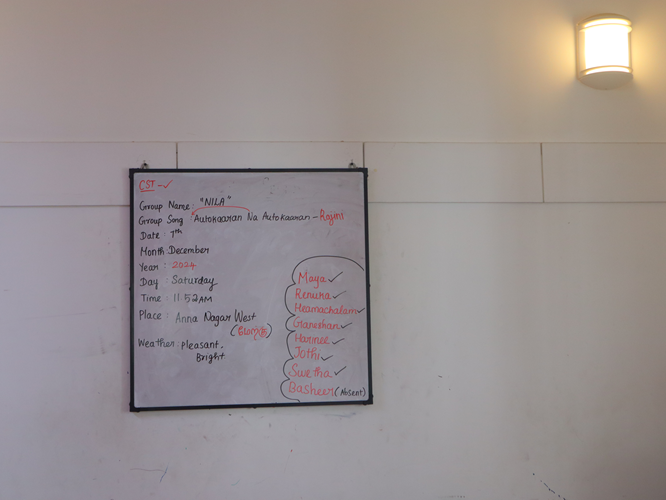
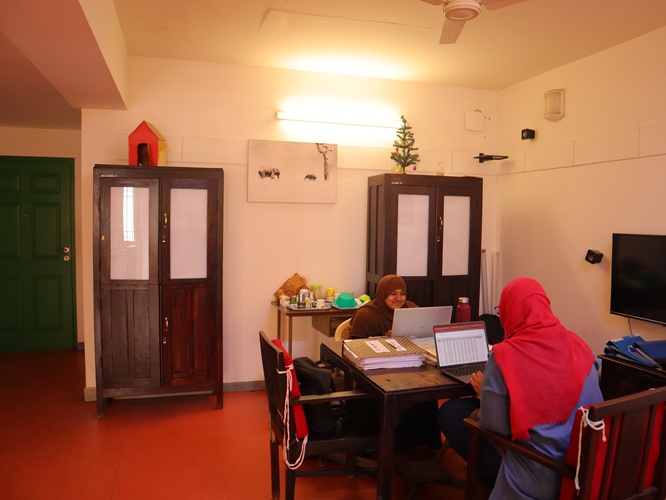
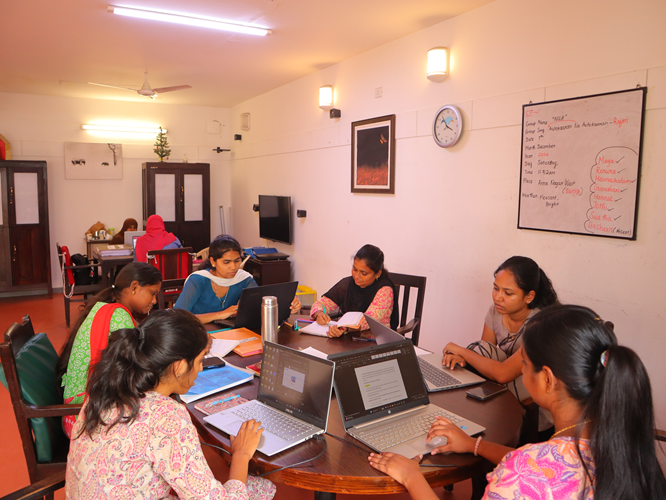
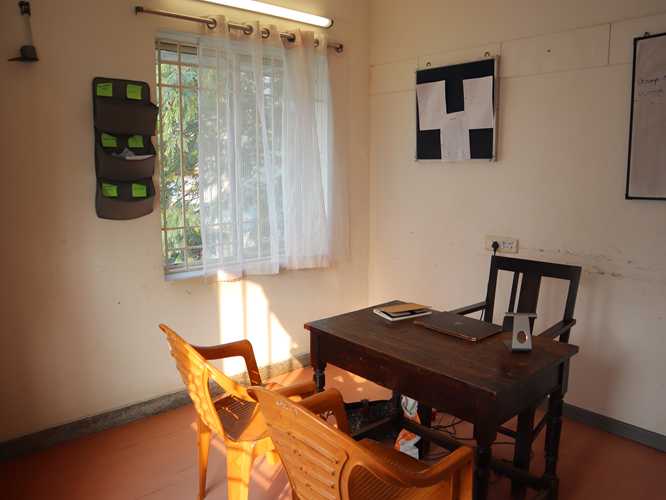
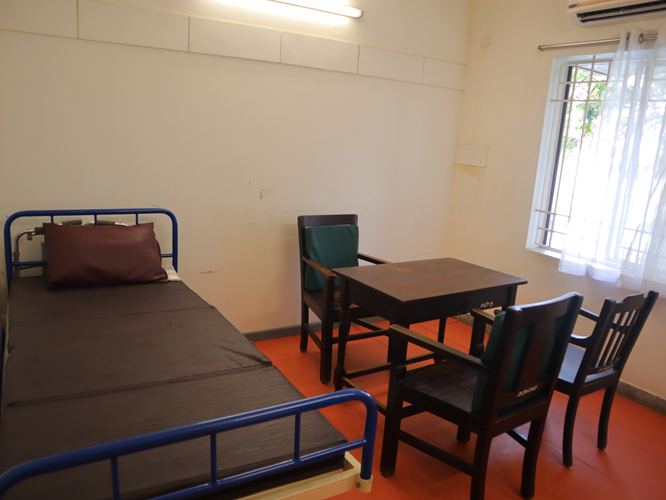
Sri. T Santhanam Centre For Elder Care
